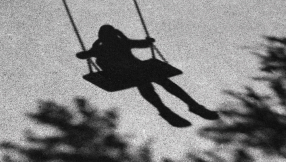
The freedom to disagree must be protected, bishops have said in response to the Scottish Government's controversial plans to expand hate crime laws.
The Catholic Church in Scotland voiced concerns that the Bible and expressing biblical values may be at risk if the Hate Crime and Public Order Bill is passed in its present form.
The Bill proposes a new offence of "stirring up hatred" but critics say the wording is too vague and poses a threat to free speech.
The proposals have been widely criticised by Christians, secularists, lawyers and the Scottish police.
In a submission to the public consultation which closed last Friday, the Catholic Bishops' Conference of Scotland said that any new law must be "carefully weighed against fundamental freedoms, such as the right to free speech, freedom of expression, and freedom of thought, conscience and religion".
"The growth of what some describe as the 'cancel culture' - hunting down those who disagree with prominent orthodoxies with the intention to expunge the non-compliant from public discourse and with callous disregard for their livelihoods - is deeply concerning," the bishops said.
Director of the Catholic Parliamentary Office, Anthony Horan, said that any freedom of expression provisions in the Bill "must be robust enough to protect the freedom to disagree".
"Whilst acknowledging that stirring up of hatred is morally wrong and supporting moves to discourage and condemn such behaviour the bishops have expressed concerns about the lack of clarity around definitions and a potentially low threshold for committing an offence, which they fear, could lead to a 'deluge of vexatious claims'," he said.
"A new offence of possessing inflammatory material could even render material such as the Bible and the Catechism of the Catholic Church...inflammatory.
"The Catholic Church's understanding of the human person, including the belief that sex and gender are not fluid and changeable, could fall foul of the new law.
"Allowing for respectful debate, means avoiding censorship and accepting the divergent views and multitude of arguments inhabiting society."
The Free Church of Scotland has raised similar concerns about the Bill, warning that it may have a "significant detrimental effect on free speech within our society".
"We recognise that there are issues in our society of genuine hatred which are wrong and should be addressed. However, we are also concerned by the tendency of some to see any criticism of their beliefs and opinions as amounting to hatred," it said in its own submission to the consultation.
"We believe it is possible to disagree with someone while loving and respecting them as a person. Indeed, we believe that an understanding that people hold a wide range of opinions and beliefs on a wide range of issues, and acceptance (even encouragement) of free debate about such opinions and beliefs is an essential feature of a mature democratic society."
The Times of Scotland, in an op-ed, called the Bill an "act of folly" and "illiberal thoughtlessness".
"Indeed, some aspects of the bill plainly have the potential to curb rights to free expression previously considered central to the proper functioning of a democratic society," the paper said.
The Scottish Police Federation said that officers may be left in the untenable position of having to decide what "free speech" is.
In a statement on Tuesday, Calum Steele, the federation's general secretary, said the Bill could result in the policing of thoughts and feelings, and the criminalisation of the private sphere.
He added: "We are firmly of the view this proposed legislation would see officers policing speech and would devastate the legitimacy of the police in the eyes of the public.
"That can never be an acceptable outcome – and we should never forget that the police in Scotland police only with the consent of the people.
"Police officers are all too aware that there are individuals in society who believe that to feel insulted or offended is a police matter.
"The Bill would move even further from policing and criminalising of deeds and acts to the potential policing of what people think or feel, as well as the criminalisation of what is said in private."
He continued: "If the Bill as presented is passed, those accused of the new offences of stirring up hatred will not have the opportunity to prove that they did not intend to stir up hatred or that they had no reason to suspect their conduct would do so.
"We do not for one second suggest that prejudice, racism or discrimination are desirable qualities in our society but the need to address those matters when they reach a criminal level is met by laws already in place and the cost to free speech of going further with this Bill is too high a price to pay for very little gain."













